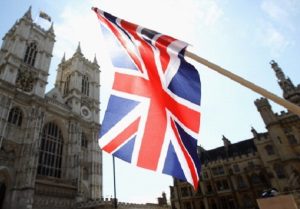People smugglers to have finances targeted with sanctions
4 min readThe UK government is set to implement new sanctions aimed at crippling the finances of people smuggling networks, making it more difficult for these criminal gangs to profit from their deadly trade. According to the Home Office, these sanctions are a key part of a wider effort to curb illegal migration into the UK.
Foreign Secretary David Lammy revealed to the BBC that the sanctions would include freezing the bank accounts and assets of individuals and organizations involved in smuggling people into the country illegally. Additionally, those implicated in people smuggling may face travel bans, further restricting their ability to operate across borders.
The UK government has confirmed that these proposed sanctions are expected to be enforced later this year. However, officials have acknowledged that it remains unclear how many smugglers or their associates will be targeted or how much wealth, if any, these individuals hold within the UK’s financial institutions.
Lammy explained that the measures would focus on disrupting the flow of money to people smuggling gangs, with potential sanctions also extending to companies and individuals who assist in illegal migration, including those involved in the manufacture of boats used to transport migrants across the English Channel. Lammy is set to provide further details on these plans in a speech scheduled for Thursday.
While the government is moving forward with the sanctions, much about the new regime is still undefined. Sanctions are a highly complex and technical legal process, and it could take several months to develop the full framework for this new system. Lammy emphasized that these sanctions aim to “shift behaviour” and serve as a deterrent to people smuggling operations.
Under the proposed scheme, individuals and financial institutions based in the UK will be legally prohibited from conducting business with those who have been sanctioned. The government plans to introduce new legislation to support this effort, with input from sanction experts, law enforcement agencies, and the Home Office.
Many people smugglers operate in informal, cash-based networks, which makes it challenging for authorities to target their assets directly. However, Lammy suggested that it may be easier to sanction the supply chains that support the smugglers, such as companies that produce boats or provide other materials used in the illegal migration process. These middlemen, often working to connect networks and facilitate the movement of migrants across Europe, are seen as key targets in disrupting the smuggling operations.
Speaking on BBC Radio 4’s Today programme, Lammy pointed out that there are identifiable companies involved in the manufacture, storage, and transportation of boats used for smuggling people. “We know who those companies are, we can go after those value chains and supply chains,” he said, emphasizing the government’s ability to target these essential elements of the illegal trade.
Prime Minister Sir Keir Starmer expressed support for the sanctions, arguing that they would deprive people smuggling gangs of the “illicit finance fueling their operations.” Writing in the Daily Mail, Starmer noted that the primary motivation for these gangs is profit, promising to “hit them where it hurts.” He argued that targeting the significant financial rewards of people smuggling would reduce their incentive to continue their criminal activities, ultimately putting the gangs out of business.
The government claims that these sanctions will be the first in the world specifically aimed at dismantling people smuggling networks. This new approach is part of a broader strategy to address illegal migration and people trafficking.
In 2024, there was a noticeable increase in the number of people detected crossing the English Channel in small boats, with figures rising by a quarter compared to the previous year. The number of detected crossings went up from 29,437 in 2023 to 36,816 in 2024, though it remained lower than the record-breaking 45,755 seen in 2022.
In addition to financial sanctions, the UK government has granted enhanced powers to its Border Security Command, allowing the freezing of smuggling networks’ bank accounts. Earlier this month, ministers also introduced new laws that include the possibility of travel bans, social media restrictions, and phone monitoring for individuals suspected of people smuggling.
The Labour Party has criticized the government’s approach, with Shadow Foreign Secretary Dame Priti Patel accusing them of lacking credibility on the issue of people smuggling. Patel pointed out that Labour had voted against tougher penalties, including life sentences for smugglers, and had abolished the controversial Rwanda asylum policy. She also noted that Labour had prioritized the rights of foreign national offenders and criminals over the safety of British citizens.
As the government moves forward with its sanctions, much remains uncertain about how effective these measures will be in dismantling people smuggling operations. However, the government is committed to implementing a strategy designed to disrupt these illegal activities and reduce the financial incentives driving them.







